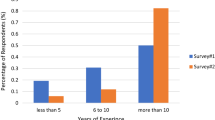Abstract
A quantitative methodology is developed to support negotiations over the allocation of costs and benefits in brownfield redevelopment projects by utilizing cooperative game theory. In particular, guidelines for estimating the net benefits of various coalitions that can be formed by the landowners, developers and governments are presented. A general n-player cooperative game is formulated to model the negotiations. Two simple conditions are obtained for checking whether or not a three-player brownfield redevelopment negotiation game has a nonempty core. Various nucleolus concepts and the Shapley value are utilized to find alternative fair cost and benefit allocation schemes, from which the decision makers can negotiate. An illustrative example is employed to demonstrate how the proposed approach can be applied in practice.
Similar content being viewed by others
References
AMO (Association of Municipalities of Ontario) (2006) AMO report on brownfields redevelopment: what has been achieved, what remains to be done. Association of Municipalities of Ontario, Toronto, Canada
Benazon N (1995) Soil remediation: a practical overview of Canadian cleanup strategies and commercially available technology. Hazard Mater Manage 7(5): 10–26
Brooke A, Kendrick D, Meeraus A, Raman R (1998) GAMS—a user’s guide. GAMS Development Corporation, Washington, DC
Dair CM, Williams K (2006) Sustainable land reuse: the influence of different stakeholders in achieving sustainable brownfield developments in England. Environ Plan A 38: 1345–1366
De Sousa CA (2000) Brownfield redevelopment versus greenfield development: a private sector perspective on the costs and risks associated with brownfield redevelopment in the greater Toronto area. J Environ Plan Manage 43(6): 831–853
De Sousa CA (2002) Brownfield redevelopment in Toronto: an examination of past trends and future prospects. Land Use Policy 19: 297–309
De Sousa CA (2006) Urban brownfields redevelopment in Canada: the role of local government. Can Geogr 50(3): 392–407
Dinar A, Ratner A, Yaron D (1992) Evaluating cooperative game theory in water resources. Theory Decis 32: 1–20
Driessen T, Tijs SH (1985) The cost gap method and other cost allocation methods for multipurpose water projects. Water Resour Res 21: 1469–1475
Lejano RP, Davos CA (1995) Cost allocation of multiagency water resource projects: game-theoretic approaches and case study. Water Resour Res 31: 1387–1393
Loehman E, Orlando J, Tschirhart J, Whinston A (1979) Cost allocation for a regional wastewater treatment system. Water Resour Res 15: 193–202
NRTEE (National Round Table on the Environment and Economy) (2003) Cleaning up the past, building the future: a national brownfield redevelopment strategy for Canada. National Round Table on the Environment and Economy, Ottawa, Canada
Owen G (1995) Game theory, 3rd edn. Academic Press, New York
Shapley LS (1953) A value for n-person games. In: Kuhn HW, Tucker AW (eds) Contributions to the theory of games, Vol. II. Princeton University Press, Princeton, pp 307–317
Sounderpandian J, Frank N, Chalasani S (2005) A support system for mediating brownfields redevelopment negotiations. Ind Manage Data Syst 105(2): 237–254
Tisdell JG, Harrison SR (1992) Estimating an optimal distribution of water entitlements. Water Resour Res 28: 3111–3117
US EPA (1997) Brownfields glossary of terms, Washington DC: Office of Solid Waste and Emergency Response, http://www.epa.gov/swerosps/bf/glossary.htm
Wang L, Fang L, Hipel KW (2007) A game-theoretic approach to brownfield redevelopment: negotiation on cost and benefit allocation. In: Proceedings of the 2007 IEEE international conference on systems, man, and cybernetics, Montreal, Canada, pp 1800–1805
Wang L, Fang L, Hipel KW (2008a) Basin-wide cooperative water resources allocation. Eur J Oper Res 190(3): 798–817
Wang L, Fang L, Hipel KW, Gray PA (2008b) Subsurface contaminant remediation and cost/benefit sharing to redevelop a Naphtha contaminated brownfield. In: Proceedings of water down under 2008, incorporating the 31st hydrology and water resources symposium and the 4th international conference on water resources and environment research, Adelaide, Australia, pp 2423–2433
Young HP, Okada N, Hashimoto T (1982) Cost allocation in water resources development. Water Resour Res 18: 463–475
Author information
Authors and Affiliations
Corresponding author
Rights and permissions
About this article
Cite this article
Wang, L., Fang, L. & Hipel, K.W. Negotiation over Costs and Benefits in Brownfield Redevelopment. Group Decis Negot 20, 509–524 (2011). https://doi.org/10.1007/s10726-009-9179-5
Published:
Issue Date:
DOI: https://doi.org/10.1007/s10726-009-9179-5




